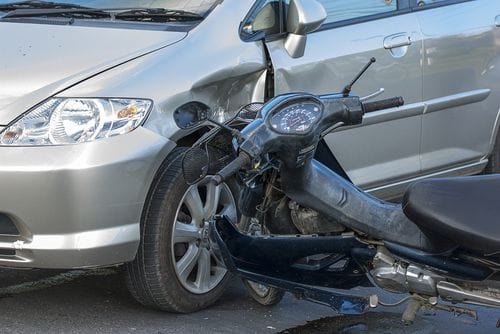
Akshat Tiwari Wrote on Supreme Court Takes Note of Growing Student Suicides in India
On 25th July 2025, the Supreme Court delivered its judgment in Sukdeb Saha vs. State of Andhra Pradesh and Ors[1] addressing the pressing issue of student suicides and mental health. The Top Court issued guidelines and ordered compliance of the mandates to prevent this ‘suicide epidemic’. The judgment also discussed the law surrounding transfer of investigation to Central Bureau of Investigation (CBI).
FACTUAL CIRCUMSTANCES
The appellant approached the Apex Court to obtain a direction to transfer investigation of his daughter’s death to CBI following arbitrary and perfunctory investigation by the state police. The FIR was registered after the appellant’s 17-year-old daughter, Ms. X, died under unnatural circumstances. Ms. X was undergoing coaching for the NEET examination in Vishakhapatnam. She was staying in hostel accommodation suggested by the coaching administration when the fateful incident occurred.
For More Updates & Regular Notes Join Our Whats App Group (https://chat.whatsapp.com/DkucckgAEJbCtXwXr2yIt0) and Telegram Group ( https://t.me/legalmaestroeducators ) contact@legalmaestros.com.
During the investigation, various procedural lapses were observed by the appellant, such as withholding of chemical analysis reports, unaddressed CCTV footage contradictions and premature destruction of viscera by the hospital staff. The police hastily reached a conclusion that the death was a suicide, when instead the evidence hinted toward negligence of the hostel and hospital staff.
The moot question in the case revolved around the power of Courts to transfer investigations to CBI.
POWER TO TRANSFER CASE TO CBI
The law surrounding the power to transfer an investigation to CBI is clear and unambiguous. While no precedent can lay down inflexible guidelines on the matter, as a general rule such a transfer should not be made as a matter of course. Such a course of action should be taken only in rare and compelling circumstances. This is the precedent as laid down in State of West Bengal & Others v. Committee for Protection of Democratic Rights, West Bengal (CPDR) & Others[2] and Arnab Ranjan Goswami v. Union of India[3]. These cases provide the various parameters that courts must employ while deciding pleas for transfer of cases to CBI. These factors range from police bias and unreasonable delays to irregularities in procedural compliance, suppression of evidence or inter-state ramifications.
DECISION
The Court granted the permission to transfer the case to the CBI for an impartial investigation. It found several inconsistencies and arbitrariness in the police investigation citing non-cooperation by local authorities, contradictory statements and evidence suppression. The present case is one of the rare circumstances which warrant such a transfer.
STUDENT MENTAL HEALTH
The Right to Mental Health has always been an integral part of the Right to life under Article 21 of the Constitution[4]. The Mental Healthcare Act, 2017 was a right-based legislation that guarantees mental health services to all and decriminalizes attempted suicide, recognizing the need for care rather than punishment. The present case upheld Right to Mental Health as a fundamental right under Art 21 of the Constitution.
SYSTEMIC FLAWS IN THE INDIAN EDUCATION SYSTEM
The Court flagged the decline of India’s education system. The judgment noted that while the goal of education should be the holistic development of an individual, students are now prisoners of exam pressure and ranks. Education has been transformed into a ‘high-stake low-reward’ race where failure is seen as a devastating end. The Law Commission of India, in its 210th Report, has recognised suicide as one of the most tragic and preventable forms of death in our society. A recent judgment in Amit Kumar v. Union of India[5] has also addressed the issue of student suicides across the country by dubbing it as a ‘suicide epidemic’.
SUPREME COURT ISSUES GUIDELINES
Akin to the Vishakha Guidelines which later formed the basis of Prevention of Sexual Harassment of Women at Workplace Act, the Court has formulated guidelines for prevention of student suicides until a legislation is formulated on the matter. The guidelines issued in the present case act as declared law under Art 141 read with Art 32 of the CBI and include the following directions to educational institutions:
- Appoint at least one qualified counsellor or psychologist in schools.
- Ensure optimal student to counsellor ratio.
- Coaching centres to avoid batch segregation based on academic performance.
- Display suicide prevention helpline at hostels, classrooms etc.
- Organize sensitization programmes on student mental health for parents
Detailed guidelines can be accessed here at page 50.
CONCLUSION
The Judgement is a reminder that India is losing its youth to unbearable exam pressure and immense psychological strain. The guidelines laid down in the case may prevent a fraction of these suicides, but what needs to be achieved is an overhaul of the education system in India. A system which does not promote a rat race of ranks but free thought and personal development of the Indian youth. Students are neither machines nor commodities. They are young minds that need to be nurtured and cared for. The judgment is a positive step toward achieving a permanent solutions to curb student suicides in India.
[1] 2025 INSC 893
[2] (2010) 3 SCC 571
[3] (2020) 14 SCC 12.
[4] Navtej Singh Johar v. Union of India, (2018) 10 SCC 1.
[5] 2025 SCC OnLine SC 631







